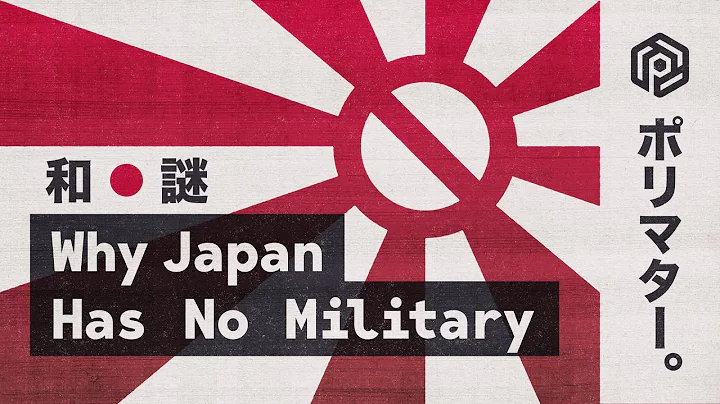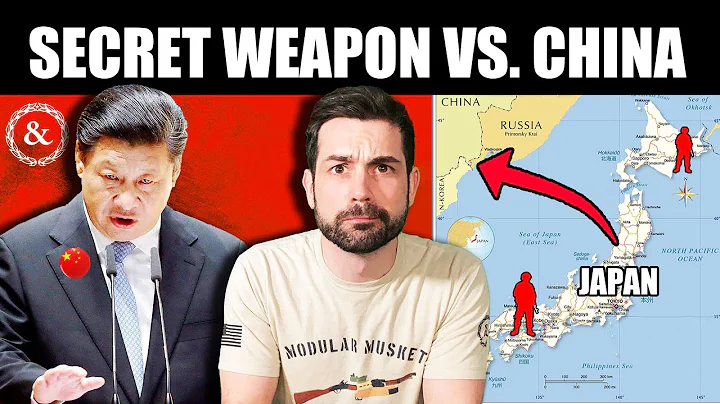If Japan breaks through the pacifist constitution and gets the opportunity to rearm its army, what will Japan's strength be like after militarization?
@Zonghengjun wants to talk about this topic with you today.
Does Japan have military industrial capabilities?
Can Japan’s military industrial capabilities ensure that Japan can manufacture weapons and equipment with advanced performance?
Perhaps many people have their own opinions on this answer.
But @Zonghengjun believes that Japan actually has very strong military industrial capabilities, and they are deeply hidden. Once freed from the constraints, the Japanese military can even achieve "I have what others don't have, and I have what others have" , Where did this conclusion come from?

As we all know, during World War II , Japan's military industrial capabilities suffered a devastating blow from the United States.
During the Korean War , the United States used Japan as a front-line base, which to a certain extent promoted the recovery of Japan's military industrial capabilities.
However, Japan is still restricted by many domestic and international factors in many cutting-edge technologies and weapons and equipment manufacturing, but this does not mean that Japan has completely given up its pursuit of military industry.
In order to escape the constraints of the "Peace Constitution", the Japanese government promulgated the "Basic Guidelines on Equipment Production and Development" in 1970 and made it an official policy.
It can be said that Japan has chosen a very covert means of preserving and developing military industrial capabilities and adopted it as a basic strategy: hiding the army from the people, integrating the military and civilians.

Japan has hidden a large amount of its military production capacity among the private sector. As we are currently familiar with, many famous Japanese industrial enterprises, such as Ishikawa Harima Heavy Industries, Japan Marine United, Mitsubishi Heavy Industries , Kawasaki Heavy Industries , Nippon Steel Works, etc., On the surface, they have a large number of civilian production departments, which serve as their main source of income. Military income usually does not exceed 15% of the total income of enterprises, and even accounts for less than 5% in many cases. But in fact, these industrial enterprises have not given up. Development, research and manufacturing of military industries.
To put it simply, the technologies in the hands of the above-mentioned companies that are used to produce cars, air conditioners, and mobile phones can be used in wartime to produce tanks , missiles , radars and other weapons of war.
Why should companies help the Japanese government develop military technology, design and finalize weapons and equipment, and be responsible for production and manufacturing?
The answer is actually very simple. Just because of this, these companies can make money.
Capital is all about making money, so we might as well start with the field of military scientific research.
The Japanese Ministry of Defense has a subordinate organization called the "Ministry of Defense Technical Research Headquarters", which is responsible for Japanese defense technology research, development, and military production. For example,
's status is similar to the "Advanced Research Projects Agency" of the US Department of Defense, which is responsible for proposing and developing high-tech military technologies.

This department has long been responsible for the development of basic military technologies, such as fighter aircraft wing materials, advanced optical detectors, etc.
The "Ministry of Defense Technology Research Headquarters" usually cooperates with enterprises in two ways. For example, after developing a new technology, the ownership of the new technology is clearly stipulated in the contract: it belongs to either the Ministry of Defense or the enterprise. If
belongs to the Ministry of Defense, then the technology cannot be transferred and the company needs to apply for the technology as a national patent, but the company can still make money.
For example, in 2011, the Ministry of Defense cooperated with Toshiba to develop airborne reconnaissance sensors and some other sensors for the RF-15 combat reconnaissance aircraft.

At that time, the sensor had been successfully developed, but the Ministry of Defense suddenly terminated the contract, so Toshiba planned to secretly use this technology to manufacture other products or sell it directly.
It is conceivable that if products manufactured using this technology are put on the market for civilian use, it will be difficult for competitors to match them.
However, the Ministry of Defense discovered the problem in time and finally restricted Toshiba from using it for other purposes due to the restrictive clauses in the contract.
But even so, through cooperation with the military, Toshiba not only received a R&D income and a liquidated damages, but also obtained policy and tax preferences for the year. It can be said that there are only benefits and no disadvantages.
Another way of cooperation is more beneficial to the enterprise.
For example, if the Ministry of Defense cooperates with a company and ultimately allows the technology patents developed to belong to the company, then the company can directly use this technology patent to produce civilian products, and its competitiveness in the market will naturally be self-evident.
is of military quality, so once launched, it usually becomes a hot commodity, bringing huge profits to the company.

However, once the military needs it, companies can directly produce the industrial products needed by the military. It can be said that it meets both civilian and military uses. This is why large Japanese companies are willing to cooperate with the military.
It is under the guidance of this method that 90% of Japan's industrial products can now be self-sufficient, and it has even been able to achieve "I have what others don't have, and I have what others have."
For example, the ones used on Japan's F-2 fighter jets J/APG-1 active phased array radar and wing composite materials are produced by Mitsubishi Electric and Toray Group respectively. It can be said that they do not ask for help at all, and even the latter's wing material technology was sold to the United States. Americans directly used it on F-35.
Japan's land, sea and air equipment, ranging from aircraft to artillery shells, are all produced by well-known manufacturers. They can even develop and finalize main battle tanks, develop fifth- and sixth-generation fighters, and even aero engines. It is developed, but Japan is very low-key and never shows it deliberately.

Some people think that Japan does not have many cutting-edge weapons, such as ballistic missiles , nuclear power systems, nuclear weapons systems, etc. Just because
has not been manufactured does not mean that Japan cannot manufacture it.
In fact, it is through the above-mentioned cooperation methods that Japanese companies have mastered a large number of basic technologies. Although this part of the strategic weapon has not been produced, it can be believed that sufficient technology and a large amount of raw materials have been accumulated.
Japan requires these companies to hide their strength based on the principle of "more research and development, less production" and focus on experimentation and finalization, but not production. Statistics related to
show that there are currently more than 2,000 companies in Japan that are eligible to sign contracts with the Defense Agency, employing about 150,000 related employees. In fact, this qualification is difficult to obtain, because the Japanese government stipulates that enterprises whose military product output value accounts for more than 10% of the company's total output value are listed as key military industry enterprises and will receive policy preferences in terms of funding investment.
It can be said that some of the research and development tasks and all production tasks of Japan's military industry are implemented by these private enterprises. These more than 2,000 companies and many more companies that are not on the list are the core group of Japan's entire military industry.





















